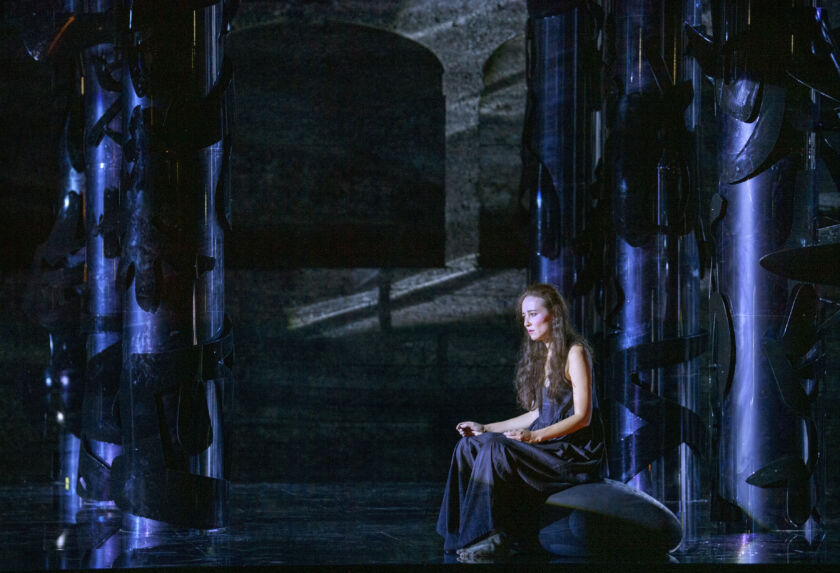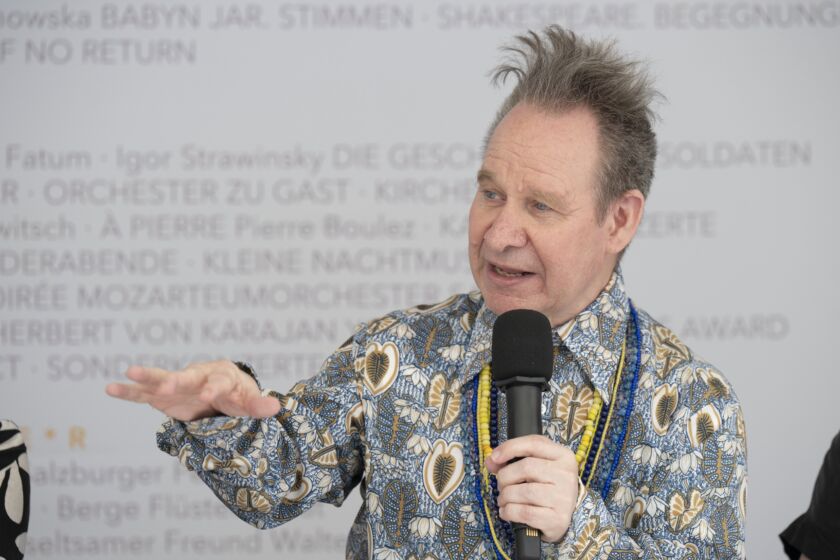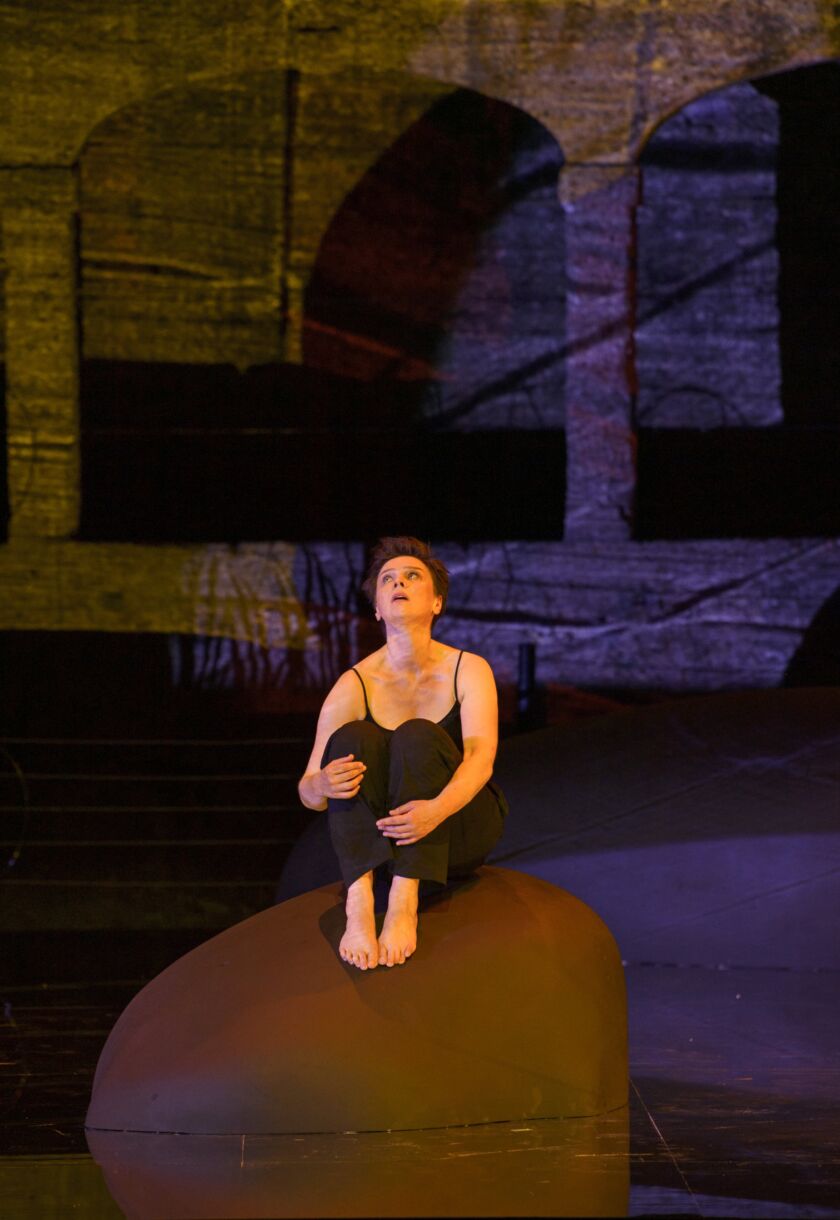One Morning Turns into an Eternity
In One Morning Turns into an Eternity, the director Peter Sellars combines two key works of modernism: Schoenberg‘s Erwartung and Mahler‘s “Der Abschied“ from Das Lied von der Erde. In very different ways, each of them recounts experiences of loss and overcoming it. In this interview, he describes his enthusiasm for both works.


Your new production at the Salzburg Festival is entitled One Morning Turns into an Eternity and begins with Arnold Schoenberg’s Erwartung. What drew you to this “monodrama”?
Peter Sellars: Several years ago, Markus Hinterhäuser invited me to consider staging Erwartung, and I immediately knew it was time. I’ve wanted to stage this piece since the 1980s. It’s an extraordinary piece – Schoenberg was inventing a new form of drama, a new form of opera, and a new form of concert music, all at once. It’s an opera about the deep, inner life of a single woman, yet it unfolds with an orchestra of 100 instruments, revealing the immensity of human emotion. The music swings from a whisper – a single flute, a brushed drum – to enormous orchestral explosions of pain, heartbreak, or joy. This piece was the source of so much 20th-century music; Alban Berg’s Wozzeck and many others drew from it. It’s raw genius.
Erwartung i soften viewed as an Expressionist work. How do you approach it?
It’s often called an Expressionist masterpiece, but I see it as something even deeper – an intensely humane work. The opera was written at a time when Sigmund Freud was developing his theories on hysteria, often diagnosing women in extreme distress. Today, we understand that many of these women were not suffering from hysteria but were reacting sanely to a world that was systematically abusing them. Erwartung captures this truth. It’s not a psychological breakdown; it’s a woman facing an unbearable reality. This piece anticipated the violence of the century to come, and it still resonates today.
You have paired Erwartung with “Der Abschied“ from Gustav Mahler‘s Das Lied von der Erde. Why these two works together?
After Erwartung, what can possibly follow? Another masterpiece for a single woman’s voice with full orchestra: “Der Abschied” from Mahler’s Das Lied von der Erde. Mahler wrote it knowing he was near the end of his life – after losing his children, receiving a fatal heart diagnosis, and leaving the Vienna Opera. He turned to Chinese poetry from the Tang dynasty, capturing the purity of Zen Buddhism and the acceptance of impermanence. Our title, One Morning turns into an Eternity, comes from one of these poems, by Wang Wei. The final song of Das Lied von der Erde is a farewell, but one that transcends grief. The pain is still there, but the music moves into something beyond emotion, beyond sorrow – into breath, into eternity. Like Schoenberg, Mahler uses a massive orchestra, but often with astonishing restraint. He’ll reduce it to one or two instruments – a flute on a distant mountain, the wind in the trees, the shimmer of moonlight on water. It’s the sound of breathing in the dark. He creates a dream world where those we’ve lost remain with us, not out there, but inside us.

How does the stage space – the Felsenreitschule – influence the performance?
Both pieces feel like they belong in nature, on a mountain, in a forest. The Felsenreitschule is just that – carved into the side of a mountain. The rock itself forms the acoustic. The Vienna Philharmonic and our soloists – Ausrine Stundyte and Wiebke Lehmkuhl – will be heard against this mountain, making the experience elemental, vast, and deeply personal.
For One Morning Turns into an Eternity, you are once again working with the conductor Esa-Pekka Salonen …
Esa-Pekka and I have a long history, beginning at the Salzburg Festival with Saint François d’Assise by Olivier Messiaen in 1992. Unlike Saint François, which was six hours long, One Morning Turns into an Eternity is two compact pieces, two beautiful jewels next to each other, each reflecting back to the other. Both saying goodbye, but also inviting a new world to be born.
Interview by Antonio Cuenca Ruiz.
First published in the Festival insert of Salzburger Nachrichten
